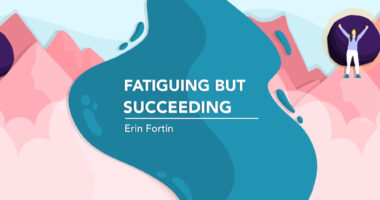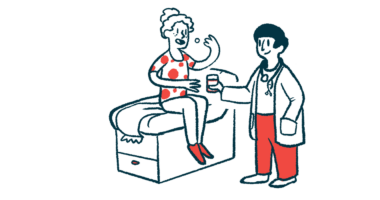How I navigate a career while managing PNH symptoms
For columnist Brandi Lewis, listening to her body is key to adapting

Working as a healthy person is hard, but add a chronic illness to your 9-to-5 job, and it becomes even tougher.
I have worked in corporate America for seven years. Throughout my career, I’ve endured stressful days when the company was short-staffed and I was the only person on the job. I found it difficult at times to avoid taking my work home with me.
Some nights I lost sleep because any mistakes I made would affect the company and other employees. Other days, I was stressed about meeting deadlines and doing my job correctly.
The stress that comes with any job can take a toll on a person’s health, but I’ve faced additional challenges due to paroxysmal nocturnal hemoglobinuria (PNH), a rare disorder in which my red blood cells break apart prematurely.
When work gets busy, it can be hard to manage both my PNH symptoms and my career. My symptoms, such as fatigue or extreme headaches, are my kryptonite. At times, they hold me back from going full steam.
One day, I received signals that my body was stressed from completing an important work project, and I knew I would pay for it. The next morning was a Saturday, and when I opened my eyes, it was as if my eyes could look around but my body couldn’t move. I’d gone stiff.
I thought, “OK, let’s rest today,” and I stayed in bed for most of the day. I canceled my plans and spent all weekend resting. The good news was that I caught up on some great Netflix shows!
What I’ve learned
The days when fatigue would paralyze me taught me some valuable lessons. I learned not to feel guilty for taking paid time off on days when my body needed rest. Fortunately, taking time off for my health isn’t much of a problem for me, because I demonstrate with my actions that I value my job.
We all need a break at times, but as someone living with PNH, my body tells me in the most egregious ways when to take a break. That’s why I no longer feel guilty about resting when I’m dealing with PNH symptoms.
Over time, I’ve learned how to do my job without pushing my body past its breaking point. I’ve learned what it means to listen to my body. I notice how it responds when I discover that a project needs to be rushed to meet a deadline. Things I pay attention to in that moment are, did my body tense up? Did I feel anxious in any area? Did I develop trouble breathing?
The brain fog that comes with PNH is another issue that makes working a 9-to-5 job difficult. When I started working again after my diagnosis, it took time for me to adjust to being forgetful. A co-worker would walk up to my desk and ask me about a task. But when they walked away, I would immediately forget what we had talked about or what I was supposed to do.
After this happened several times, I began to keep a notepad on my desk to write down all of the tasks I had to complete. These reminders were always in view and helped me complete things on time. Writing down a to-do list every day has eased my stress, which in turn eases my symptoms. I stay focused on the tasks at hand.
When I feel my body becoming anxious, I focus on my breathing. When negative thoughts fill my head, I say positive things about myself to change my thoughts.
Listening to my body is an important lesson I’ve learned on my health journey, as it helps me in every area of my life. When I listen, my body’s signals tell me how I’m feeling.
Note: PNH News is strictly a news and information website about the disease. It does not provide medical advice, diagnosis, or treatment. This content is not intended to be a substitute for professional medical advice, diagnosis, or treatment. Always seek the advice of your physician or other qualified health provider with any questions you may have regarding a medical condition. Never disregard professional medical advice or delay in seeking it because of something you have read on this website. The opinions expressed in this column are not those of PNH News or its parent company, Bionews, and are intended to spark discussion about issues pertaining to paroxysmal nocturnal hemoglobinuria.




